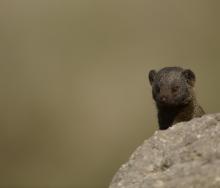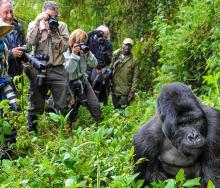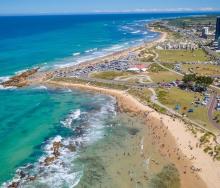The European Union has committed to fund Ksh2 billion ($20 million) to support Kenya’s efforts to combat illegal poaching and trafficking of wildlife products.
EU Commissioner for Environment, Karmenu Vella, commended Kenya for its conservation efforts, saying the funding would help reduce the illegal killing of wildlife and the trafficking of wildlife products across Eastern and Southern Africa.
“We need to find ways to work together more effectively on international trade in endangered species,” said Vella.
The anti-poaching initiative brings together the EU and UN Office on Drug and Crime as well as the Convention on Migratory Species.
Kenya’s Environment Cabinet Secretary, Judi Wakhungu, said the EU funding was a major endorsement of Kenya’s role in the global war against poaching and other wildlife crimes.
The funding from EU will go towards improving surveillance against illegal poaching and transit of game trophies along the borders and at the ports of entry, in a new cross regional wildlife programme.
Wakhungu said Kenya passed the Wildlife Management and Conservation Act 2013, which so far provides the stiffest penalties in the world for wildlife offenders.
She said the law aimed to combat illegal poaching and associated crimes, adding that, since 2013, poaching had dropped significantly, from 400 elephants in 2013.
Wakhungu pointed out that the 40 elephants lost this year were as a result of natural causes such as drought, and not poaching.
The Cabinet Secretary said the 2013 law, which provides stiff penalties, including a minimum of 20 years in jail and a Ksh20 million (€164 000) fine, to convicted wildlife offenders, has served as a major deterrent.
“Poaching is an international crime. No country can deal with the syndicates alone, but our penalties are the highest in the world and that shows our commitment in tackling the menace,” she said after signing the funding commitment from the EU.
In August, the Kenya Wildlife Service (KWS) announced the findings of an aerial survey that showed an increase in population of elephants in the Maasai Mara National Reserve.
According to the aerial survey which was conducted in May this year, 2,493 elephants were counted in the reserve, up from 1,448 elephants in 2014.
The wildlife conservation agency attributed the elephants’ population rise to deterrents such as stiffer penalties on poaching as well as increase of rangers and surveillance equipment.
Pic: Anti Poaching
Caption:
mrEU






















